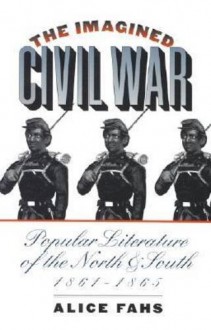Imagined Civil War: Popular Literature of the North & South 1861-1865
In this groundbreaking work of cultural history, Alice Fahs explores a little-known and fascinating side of the Civil War--the outpouring of popular literature inspired by the conflict. From 1861 to 1865, authors and publishers in both the North and the South produced a remarkable variety of...
show more
In this groundbreaking work of cultural history, Alice Fahs explores a little-known and fascinating side of the Civil War--the outpouring of popular literature inspired by the conflict. From 1861 to 1865, authors and publishers in both the North and the South produced a remarkable variety of war-related compositions, including poems, songs, children's stories, romances, novels, histories, and even humorous pieces. Fahs mines these rich but long-neglected resources to recover the diversity of the war's political and social meanings.Instead of narrowly portraying the Civil War as a clash between two great, white armies, popular literature offered a wide range of representations of the conflict and helped shape new modes of imagining the relationships of diverse individuals to the nation. Works that explored the war's devastating impact on white women's lives, for example, proclaimed the importance of their experiences on the home front, while popular writings that celebrated black manhood and heroism in the wake of emancipation helped readers begin to envision new roles for blacks in American life.Recovering a lost world of popular literature, The Imagined Civil War adds immeasurably to our understanding of American life and letters at a pivotal point in our history.
show less
Format: paperback
ISBN:
9780807854631 (0807854638)
Publish date: January 22nd 2001
Publisher: University of North Carolina Press
Pages no: 424
Edition language: English

“The real war will never get in the books.” (Walt Whitman, 1882). Fahs says our division of texts into elite and “trash” is a way of “organizing cultural authority…that readers, writers, and publishers would not have recognized at the time.” It’s also interesting, how there were not only “shared ...






 12 years ago
12 years ago